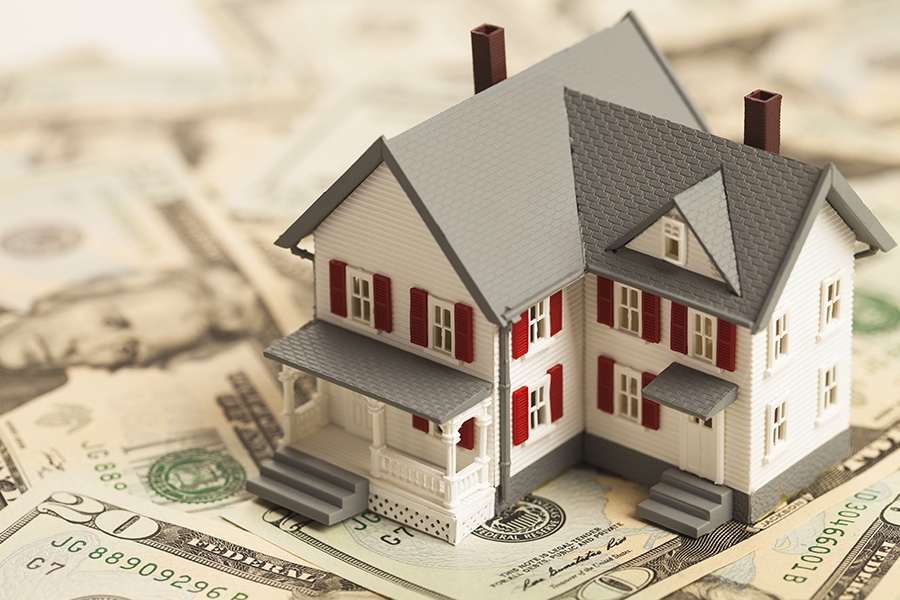When to Refinance Your Home

Refinancing your home is a process that gives you a fresh start on your mortgage. Basically, you get a new home loan with different terms, and use it to pay off your old one.
There are several reasons a homeowner may choose to refinance, but it isn’t a decision that should be taken lightly. Refinancing comes with costs of its own. You’re going to have to pay the same types of fees and percentages you did when you first took out the loan. That means unless you’ve already got some equity in your home, it may not be worth it. We’ve taken a look at some of the major reasons people refinance. If any of these sound like you, it might be time to start looking around.
Securing a Lower Interest Rate
One of the biggest reasons homeowners refinance their home is to get a better interest rate. A high interest rate can have a massive effect on the size of your payments or the life of your loan – or both! If you’re able to refinance at lower interest rate, that means you can put more money towards your principal balance each month. (Or maybe just pay less! Or maybe both!) Interest rates tend to be high when the economy and housing market are strong. But if things take a downturn and you’re still stuck with a high interest rate in a bad economy, it might be time to refinance. Since interest rates change all the time, it’s smart to check with banks on a regular basis.
You may also want to refinance to take care of other expenses built into your mortgage. Some loans (like FHA loans) come with mortgage insurance built in. If you’re on more solid financial footing and can secure a new mortgage without that extra expense, a refi may be worth considering. Again, just make sure that you can secure a favorable interest rate. If the rates have gone up, you may lose more money in extra interest than you saved by ditching the mortgage insurance.
Shortening the Loan Term
Many homeowners commonly consider refinancing their home if they’re are eligible for a shorter mortgage term. Let’s say you take out a $200,000 home loan. If your interest rate is 4.5% on a 30 year loan, you’re going to be making a monthly payment of $1,013.37. If you spring for a 15-year mortgage at a lower rate, you can save a ton of money in the long run. Even if it’s not a drastically lower rate – let’s say it’s 4%. Now your monthly payment is $1,479.38 – but you’re only paying for half the span of time you were with the other mortgage. All in all, that’s going to save you $98,526 in interest payments.
But now suppose that interest rates are declining and you shorten the loan term. especially if interest rates are declining. Let’s say you go from an 8% interest rate on a 30-year loan to a 5% rate on a 15-year loan. Now, your monthly payments go from $1,467.53/month to $1,581.59/month. That’s not a huge increase, in perspective – just $114 more every month. But over the life of the loan, you’ll save a whopping $243,624 – that’s more than the principle on the loan itself. You could buy a whole other house with that.<
Changing Interest Type
Adjustable-rate mortgages can be appealing if they start out lower than fixed-rate mortgages, but what happens when the interest rate balloons? Periodic adjustments may not seem like much, but they can add up to be much higher than the fixed-rate option. When this occurs, refinancing your home can offer you a lower percentage – or at least prevent the rate from raising further.
However, the opposite can also happen for someone who sought out a mortgage during a high-interest period. Refinancing your home from a fixed-rate loan to an adjustable-rate mortgage during a low-interest period can decrease rates and your monthly payments. Predicting the market can be a worthwhile strategy, but also risky if your adjustable-rate mortgage suddenly becomes very expensive.
Using Equity
Some homeowners choose to do a “cash-out refinance” on their home to access equity. A cash-out refi means that you refinance the mortgage for more than you currently owe, and keep what’s left over.This isn’t the same as a home equity loan. You’re paying off your whole first mortgage, and making a new one. Tapping into your home equity like this can help you cover major expenses, like remodeling a room. Doing this lets you add value to the home, and is sometimes tax deductible. However, some financial advisors consider this to be an unwise decision. You’re stuck paying interest on all of the new mortgage amount. In the long run, that can cost a lot more than if you simply saved up the money.
Another way people use cash-out refinances is debt consolidation. This can sometimes decrease the amount of interest you owe each month. If you’re struggling with high-interest credit card debt, it may be possible to pay it off at a lower interest rate as part of your mortgage. However, it’s important to curb your spending habits after you do that, and avoid using credit again.









